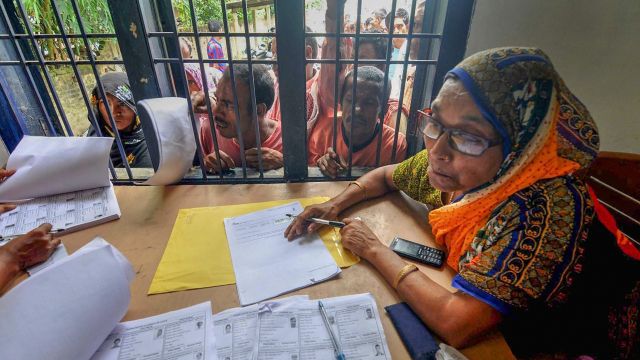
by admin | May 25, 2021 | News, Politics
 New Delhi : The Supreme Court on Wednesday ordered the commencement of submission of claims and objections on inclusion of names in Assam’s National Register of Citizens (NRC) draft from September 25.
New Delhi : The Supreme Court on Wednesday ordered the commencement of submission of claims and objections on inclusion of names in Assam’s National Register of Citizens (NRC) draft from September 25.
A bench of Justice Ranjan Gogoi and Justice Rohinton Fali Nariman said that the claims backed by 10 identity documents allowed by the court will continue for 60 days from the said date.
“We are doing this as a matter of concession,” the court said, citing recommendation by state coordinator Prateek Hajela and the Union of India.
“The process of receipt of claims and objections will now begin on and from September 25 and will remain open, tentatively, for 60 days effective from September 25”, the court added.
“We make it clear that insofar as filing of claims and objections are concerned it will be open for the claimants to rely on any one or more of the following 10 documents,” the court said.
On left-out five identity documents, the order said “… the issue is kept open till such time that… Project Coordinator Prateek Hajela offers his views/comments with regard to the statements made in the affidavit of the Union of India dated September 17.”
The court said that it was “putting on hold” the five identity documents. These will be open for consideration at a later stage after assessment of ground realities 30 days after commencement of filing of claims, it added.
The 10 documents that can be relied on for submitting claim for inclusion in the NRC list are land documents, permanent residence certificate, life insurance policy of LIC, any licence/certificate issued by any government authority, documents showing service/employment under government/PSU, bank/post office account, birth certificate issued by competent authority, educational certificate issued by board/university and record/processes of judicial or revenue court.
The five identity documents excluded for now are ration card, extract of NRC of 1951; extract/certified copy of electoral rolls up to midnight of March 24, 1971; refugee registration certificate issued up to March 24, 1971; and ration cards issued by competent authority with official seal and signature up to March 24, 1971 (midnight).
The court said that Hajela would offer his views on the “permissibility of introduction of any one or more of the (five identity) documents, at this stage of the updation process, in the light of the changed stand of the Union of India.”
The 10 identity documents are out of the 15 suggested by the state coordinator that around 40 lakh people can produce to stake claim for inclusion in the register.
As Attorney General K.K. Veugopal questioned exclusion of the five documents, Justice Nariman said: “We find these five documents can be manufactured and the “possibility of the misuse of documents is enormous.”
The Attorney General said that the “legacy and the family tree can also be bought.”
The court said: “We have not shut the door. At this stage we are going to receive the documents and review the situation after 30 days. After that, we can re-open for review the question and give them another 30 days.”
Those who have one of the 10 permitted documents can file claims and others can wait, the court said as the Attorney General said that the certified copy of the electoral rolls is a statutory document and can’t be fudged.
The Attorney General sought to know the court’s rationale of not sharing Hajela’s report submitted to the court earlier on recommendations for permitting second chance to leftout persons based on 15 identity documents.
“There is some material in the report which is not in public interest. Their disclosure will impede further course of action. We have to protect the officer (Hajela),” said Justice Gogoi.
As Venugopal said that the report was safe if given to the government, Justice Gogoi said: “Is there any doubt about the safety of the document? If not more, it is as safe.”
It said that the Attorney General’s request for a report copy wil be considered on October 23, adding that “we are of the view that having regard to the sensitive nature of some of the information contained therein which may affect the entire exercise undertaken and also the exercise that may be required to be undertaken by the Court the said report/reports should remain in the custody of the Court for the present.”
Asking Hajela to give his views on the issues flagged by the Centre and others, the court directed him not to share any information pertaining to the ongoing NRC updation with any executive, legislative or judicial authority of the state without court permission.
The matter will be heard next on October 23.
—IANS
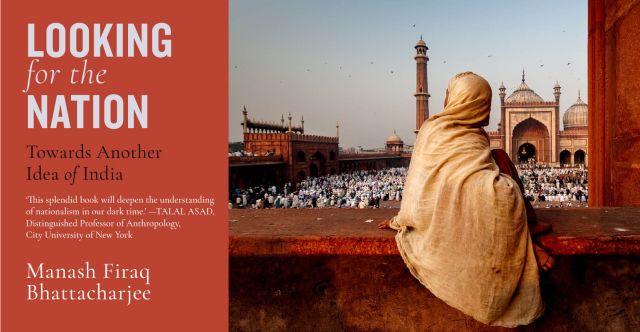
by admin | May 25, 2021 | Books
 By Saket Suman,
By Saket Suman,
Book: Looking for the Nation; Author: Manash Firaq Bhattacharjee; Publisher: Speaking Tiger; Pages: 202; Price: Rs 350
Manash Firaq Bhattacharjee, who earned his doctorate in Political Science from Jawaharlal Nehru University and has been published widely in national and international media, was haunted by a ghost during his childhood. Several decades on, the political theorist has come out with a scholarly offering — backed by research and reading — as his act of resistance against the ghost.
The author grew up in a small town in Assam and one of his father’s friend, a retired railway employee, was a frequent visitor to their house. For reasons yet incomprehensible to the then young lad, this old man, and his politically sanctioned method, would cast a harrowing shadow on his upbringing.
To put things in perspective, the old man would customarily narrate stories about the violence of Partition, that erupted after India and Pakistan were separated at birth. But his stories “inevitably revolved around Muslims attacking hindu villages,” and the resistance strategies that Hindus evolved to ward off the attack.
“I remember one particular incident he narrated, where scores of bricks were stored on the terraces of Hindu households… When the Muslims attacked, the bricks were put to effective use. “We never wondered why he chose to tell a 14-year-old boy and his sister stories that would shake them to the bone,” he recalls in “Looking for the Nation: Towards Another Idea of India”.
Many years later, Bhattacharjee realised that the telling of such harrowing, sometimes skewed, stories were a part of “a deliberate plan”.
“The man, I learnt much later, belonged to a Hindu right-wing organisation. The stories he told us were part of his job. His job was propaganda. This was a politically sanctioned method to arouse and cement communal sentiments,” he reflects in the book.
But “his lies and fantasies” have caught on with the author’s present and he penned this book, “not looking for a desirable idea of the nation”, but in the quest for “the nation with irony, discovering everything that falls short of fraternity and justice”.
And how does he do it? Fortunately, Bhattacharjee’s offering breaks from the routine books that either blindly critique the functioning of Hindu right wing organisations, or are full of praise for them. His book is neither criticism, nor reflection, if anything, it is an earnest attempt at understanding how our country functions, not in accordance with what is laid down in the Constitution, but in practise in our day-to-day lives.
His arguments are broken down in six chapters, each tracing a particular trajectory that has gone in, or continues to shape, the elusive idea of India.
In the first chapter “The Surplus of Indian Nationalism”, his findings suggest that Indian nationalist thought is a product of the anti-colonial movement. In finding the root and evolution of Indian nationalism, he keenly studies the works of Nehru, Tagore, Gandhi, Ambedkar and others, who, through their participation in the freedom movement, gave voice to the sentiments of nationalism.
He explains that Nehru, in his writings, laid down the larger debate of nationalism, and its relation with modernity, culture, identity and history. Aurobindo, on the other hand, reflected on the nation as “a grand idea in the shadow of religious differences”. The chapter also suggests that Tagore engaged with Gandhi on the question of culture and universalism, while Ambedkar provided a critical perspective on the speculations by nationalist thinkers.
After having laid down the foundation of his research in the first chapter, Bhattacharjee strolls down the “territory without justice”. “…Since then (Independence), the stories of betrayal, hatred, and above all, the fetish for territory, haven’t come to an end”, he notes, before analysing the fate and predicament of the nation’s most “beleaguered people” — the refugees, the Dalits and the minorities.
In the next chapter, he looks at India’s Muslims, with the shadow of Partition behind them, and the future ahead. “The discourse of trust and mutual generosity were taken over by suspicion and hatred. Religion and history were treated as contested territories of difference,” he writes in charting what has “led to the sacrifice of ethical responsibility”.
The remaining chapters focus on “Untouchables”; the institutions of the country, where he finds that bodies are coerced through mechanisms of control; and “Thinking Against Power”, the last chapter of the book, throws light on the resistances against nationalism, caste and other embedded patriarchies.
“Looking for the Nation”, however, may come across as too heavy for some readers, flooded as it is with analogies, reflections and studies of various thinkers and leaders. This book’s merit lies in its structure, and the author succeeds in telling what he set out to do, by dividing the book into six chapters, each focussing on one theme and leading, quite naturally, on to the next.
(Saket Suman can be contacted at saket.s@ians.in)
—IANS
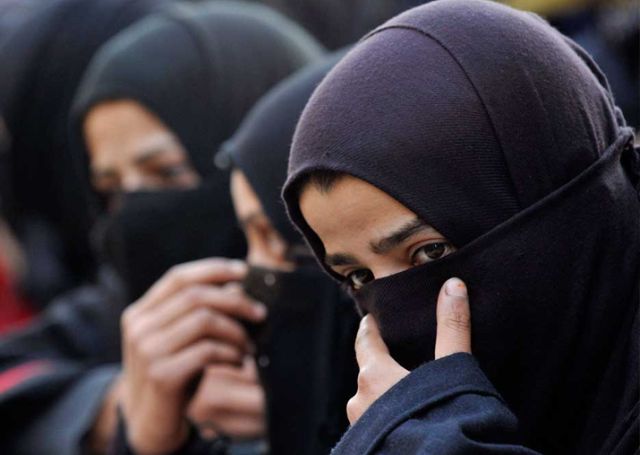
by admin | May 25, 2021 | News, Politics
 New Delhi : The Union Cabinet on Wednesday approved an ordinance making triple talaq a criminal offence, a bill on which is pending in the Rajya Sabha.
New Delhi : The Union Cabinet on Wednesday approved an ordinance making triple talaq a criminal offence, a bill on which is pending in the Rajya Sabha.
Law Minister Ravi Shankar Prasad gave the information to the media after the cabinet meeting.
—IANS
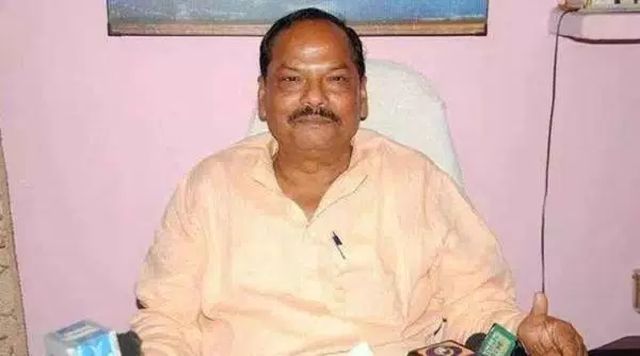
by admin | May 25, 2021 | Interviews, Politics

Raghubar Das
By Brajendra Nath Singh,
Ranchi : With BJP deciding to focus on identity issues in the coming elections, Jharkhand Chief Minister Raghubar Das says there is need for a National Register of Citizens (NRC) in his state also to check infiltration from Bangladesh because Hindus have become a minority in some districts.
He also favours job reservations on the basis of economic backwardness and called for a consensus on the issue.
“We will take all Bangladeshis out one by one. There is no doubt about it. In Pakur, Hindus are now in a minority. Bangladeshis are more than 50 per cent in Pakur while the numbers have increased significantly in Sahebganj, Godda and Jamtara districts. We will implement NRC in Jharkhand,” Das told IANS in an interview during a visit organised by the BJP’s Good Governance Cell.
The Jharkhand government has approached the union Home Ministry in this regard and is waiting for its response for initiating the exercise.
The Chief Minister accused the political parties of patronising Bangladeshi infiltrators across the state and said the issue needs to addressed at the earliest.
“It is very unfortunate that Congress has been doing votebank politics even after 67 years of our independence. All these problems are due to Congress’ votebank politics. They did politics for breaking the country while we (BJP) are doing politics to unite the country,” he said.
He alleged that Sahebganj, Pakur, Godda and Jamtara are the worst-hit districts where hundreds of illegal migration of Bangladeshi infiltrators has taken place in Jharkhand.
Seeking job reservations on the basis of the economic criteria, the chief minister demanded a national-level discussion on the issue to evolve a consensus.
“I am in favour of reservation on the basis of economic condition. In society, everybody is not rich. It is not that all those belong to upper caste are rich. I am in favour of it. There are poor people in every society. The issue needs to be discussed and a consensus needs to be evolved, he said.
The Chief Minister also backed the idea of ‘One Nation, One Election’ but rejected any advancing of dates for the Assembly polls in Jharkhand along with the Lok Sabha polls in 2019. Assembly polls are scheduled in Jharkhand six months after the Lok Sabha polls.
“I am also in favour of one nation, one election. The Prime Minister has given a call for debate on the issue. An atmosphere in its favour must be created by debate and discussion. It is not that we want and they want. It’s a matter of consensus. It needs to be passed by parliament. If a consensus is evolved, there may be simultaneous polls of Lok Sabha and Assemblies in 2024, he said.
Asked whether he would go for Assembly polls together with Lok Sabha polls, he said: our election will be at its scheduled time and Lok Sabha elections will be at its scheduled time. There are no ifs and buts. Why would I go for early polls. My condition is not bad.”
The Chief Minister said that there would be no impact of the grand alliance in 2019 and claimed that the BJP under the leadership of Prime Minister Narendra Modi would again emerge victorious.
“Whether it is alliance or grand alliance (mahagathbandhan), we are not worried at all. Can oil and water mix together? Even when you mix oil and water together they will still separate. Our focus is on strengthening the organisation. We have a leadership like Modiji, on whom the people of the country have strong faith.”
(Brajendra Nath Singh can be contacted brajendra.n@ians.in)
—IANS
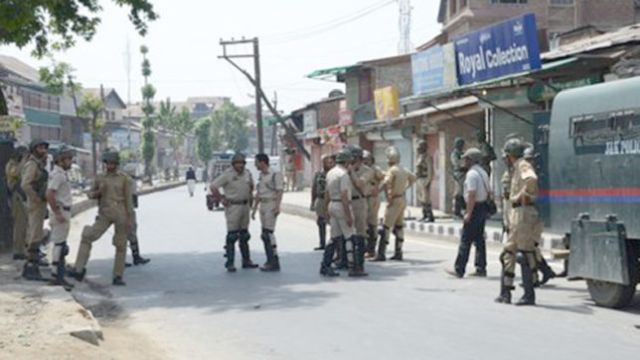
by admin | May 25, 2021 | News, Politics
 Srinagar : A protest shutdown called by the separatists affected life adversely across the Kashmir Valley on Monday.
Srinagar : A protest shutdown called by the separatists affected life adversely across the Kashmir Valley on Monday.
Joint Resistance Leadership (JRL) separatist conglomerate headed by Syed Ali Geelani, Mirwaiz Umer Farooq and Muhammad Yasin Malik called for the shutdown against the killings of five militants and a civilian in Chowgam village of Kulgam district on Saturday.
Shops, public transport, other businesses and educational institutions remained closed in Srinagar and the district headquarters of the Valley.
Attendance in post offices and banks was also affected because of the non-availability of public transport in Srinagar and other places.
All university exams scheduled for Monday have been postponed and rail services between the Valley and Bannihal town of Jammu region have been suspended.
Heavy deployment of police and Centre Reserve Police Force (CRPF) has been made in Srinagar city and other sensitive places in the Valley.
—IANS

 New Delhi : The Supreme Court on Wednesday ordered the commencement of submission of claims and objections on inclusion of names in Assam’s National Register of Citizens (NRC) draft from September 25.
New Delhi : The Supreme Court on Wednesday ordered the commencement of submission of claims and objections on inclusion of names in Assam’s National Register of Citizens (NRC) draft from September 25.



